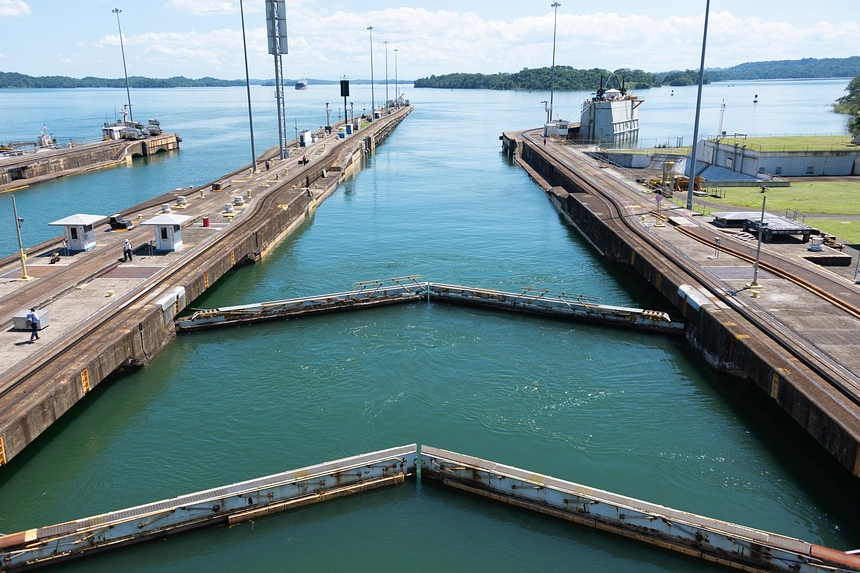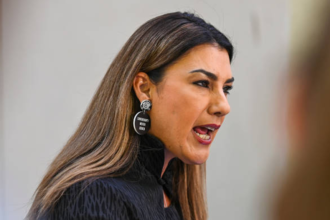Announcing a marked change in its foreign policy, Panama said in a major diplomatic gesture that it will not be renewing its membership in China’s Belt and Road Initiative (BRI). Following US Secretary of State Marco Rubio’s visit to Panama, when he pushed the nation to cut off Chinese influence, this choice followed. The news was confirmed by Panama’s President José Raúl Mulino, who clarified that the deal, first intended to endure several more years, will now be let to expire without renewal.
Celebrating the decision, Rubio said on X, “This is a great step forward for US-Panama relations, a free Panama Canal, and another example of @POTUS leadership to protect our national security and deliver prosperity for the American people.”
How Does This Affect US-Panama Relations?
Washington, which has long attacked China’s Belt and Road Initiative for fostering “debt trap diplomacy” in underdeveloped nations, sees this as a triumph. During his first visit as Secretary of State, Rubio concentrated on underlining the significance of Panama’s relationship with the United States, especially with reference to the Panama Canal.
“Yesterday’s announcement by President @JoseRaulMulino that Panama will allow its participation in the CCP’s belt and road initiative to expire is a great step forward for US-Panama relations,” Rubio said in his post-visit remarks. His compliments highlighted the more general strategic objectives of the US to keep a strong, powerful alliance with Panama in the area.
How would Panama's choice affect its relationship with China?
Especially following Panama’s diplomatic change from Taiwan to China, Panama’s involvement in China’s Belt and Road Initiative—which started in 2017—was perceived as a diplomatic turn toward Beijing. But many nations, including Panama, have begun to reevaluate their ties to the project as growing worries over the exorbitant cost of Chinese-backed infrastructure projects and the debt load weigh in on them.
China, which supports the BRI as a worldwide development strategy, keeps rejecting Western criticism, pointing out the advantages of the project for trade in more than 100 nations and infrastructure. But the effort has drawn criticism in other countries; Italy withdrew in 2023 in part under US influence.
US Views Regarding China's Invasions of Panama?
US authorities have expressed continuous worries about Chinese businesses running close to a strategically important asset, the Panama Canal. For example, CK Hutchison Holdings, with headquarters in Hong Kong, runs two main ports at each ends of the canal. With the US claiming that China’s operations violate the neutrality agreement struck between the US and Panama in 1977, Rubio’s visit was mostly aimed at addressing the increasing Chinese presence in Panama.
Long seen by the US as a possible danger to national security and the stability of the Panama Canal, which is still essential for world trade and US interests, these Chinese activities have long caused concern. After Rubio’s talks with President Mulino, the US State Department expressed similar worries underlining that Chinese developments close to the canal constitute a serious threat.
What would the audit of Port Concessions by Panama produce?
The main result of Rubio’s visit was Panama’s readiness to go over the concession agreements with Chinese businesses running across the canal area. This might result in a review of CK Hutchison Holdings’ 25-year lease on two of the ports of the canal, renewed in 2021. The concession will be audited to look for any possible problems—especially corruption—that might let for a term renegotiation.
Ryan Berg, Washington’s Center for Strategic and International Studies’ Americas Program director, said that such an examination might give Panama the legal means to undo the concessions. “That offers more legal structure for Panama to wiggle out of the concessions and for Panama to reopen such that an American company or a European company might come in and win the bid,” Berg said
How Does this Affect Panama's Part in Latin American Geopolitics?
The Trump government’s approach to Latin American diplomacy marks an early success, according to Professor Yanzhong Huang of the Council on Foreign Relations. Huang also voiced caution, noting that the US may find it difficult to repeat this impact elsewhere, especially in Asia where China’s influence is far more ingrained.
“The US now seems to be focusing more on its backyard, Latin America, these countries still dependent on US support and trade,” Huang said. “But I’m not sure the US could employ comparable leverage to compel an Asian nation, for example, to make comparable compromises. Given China already ranks as the most powerful actor in that area, it seems improbable.
Panama’s choice to leave China’s Belt and Road Initiative represents a turning point in its geopolitical posture as it reviews its ties and foreign alliances.








